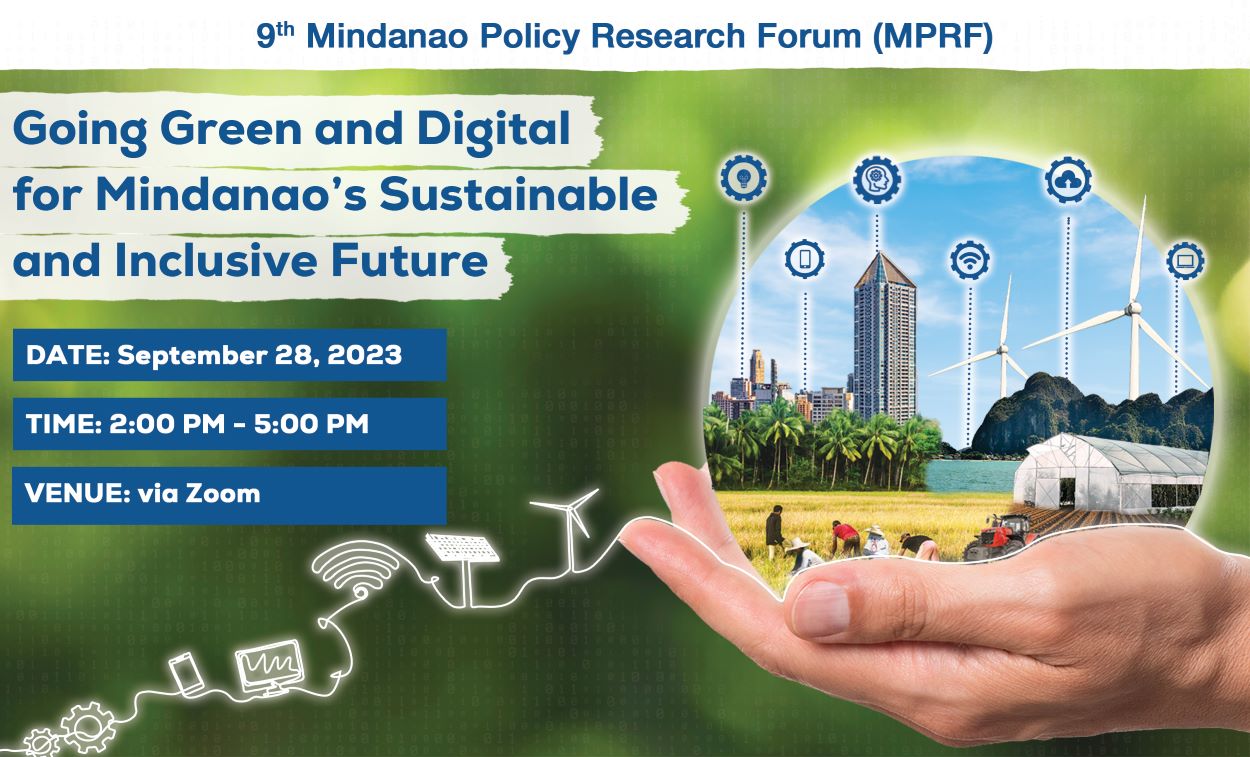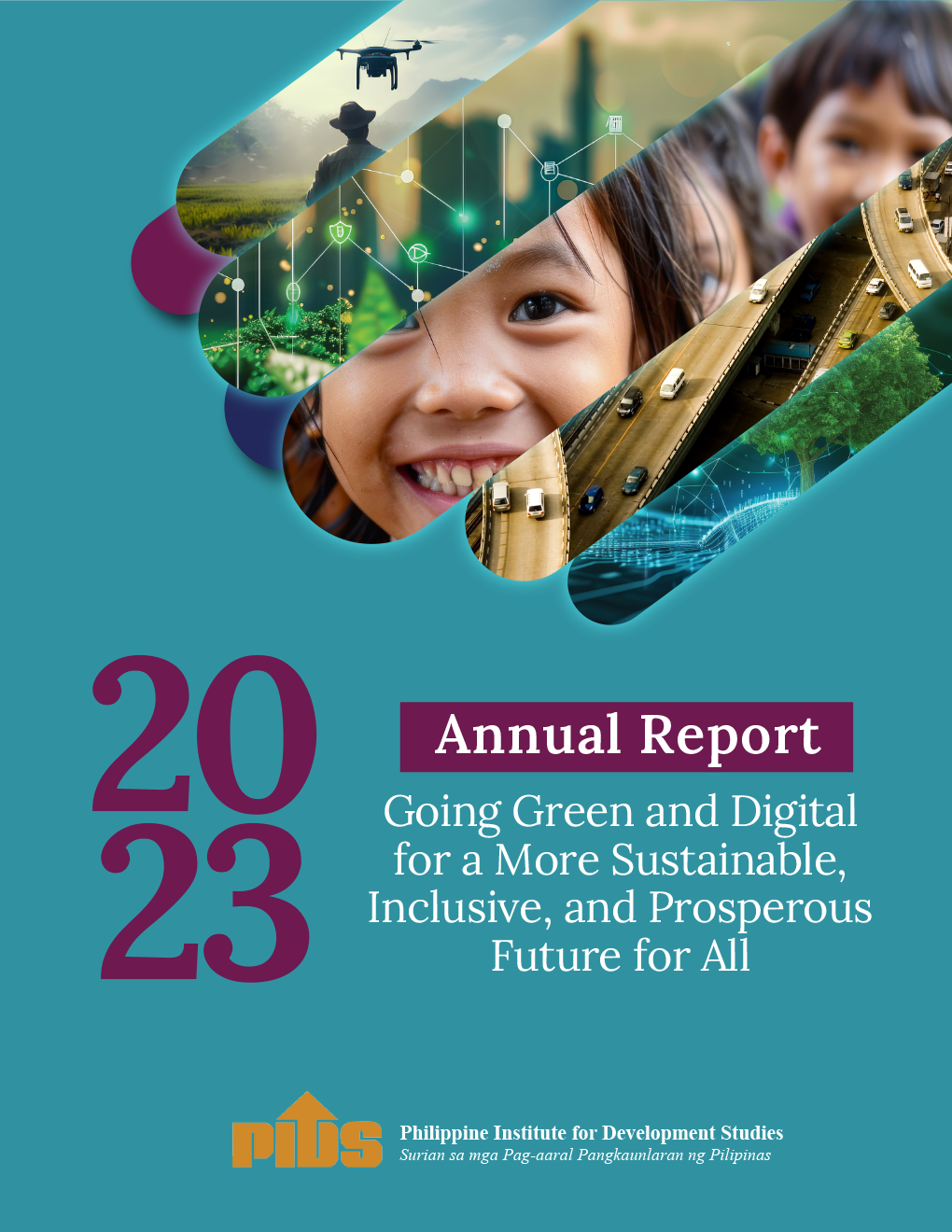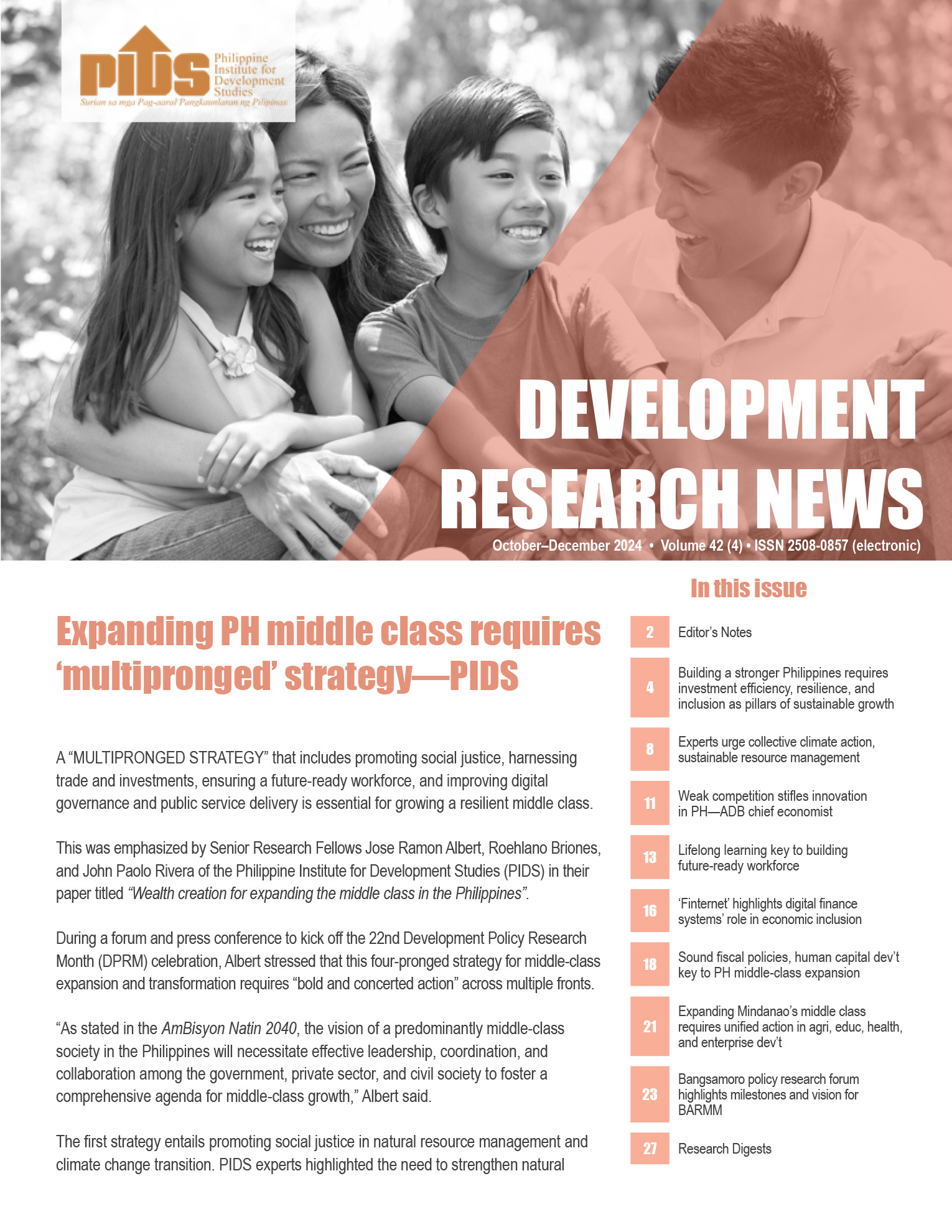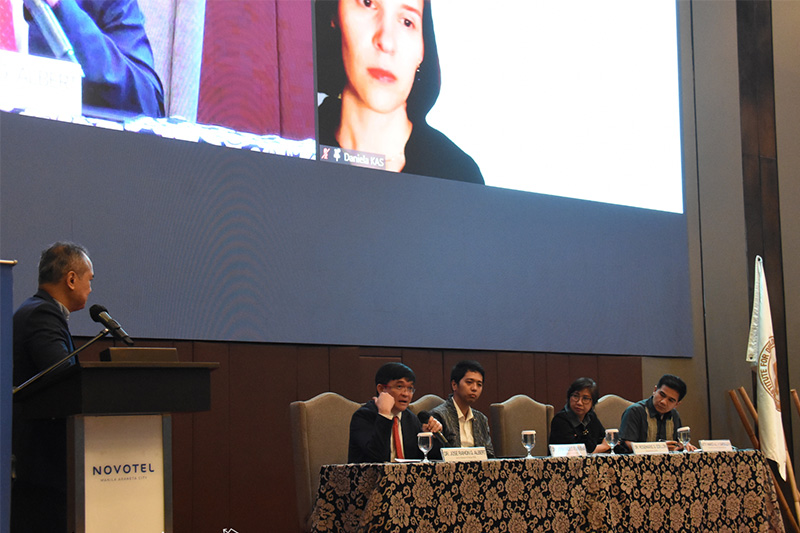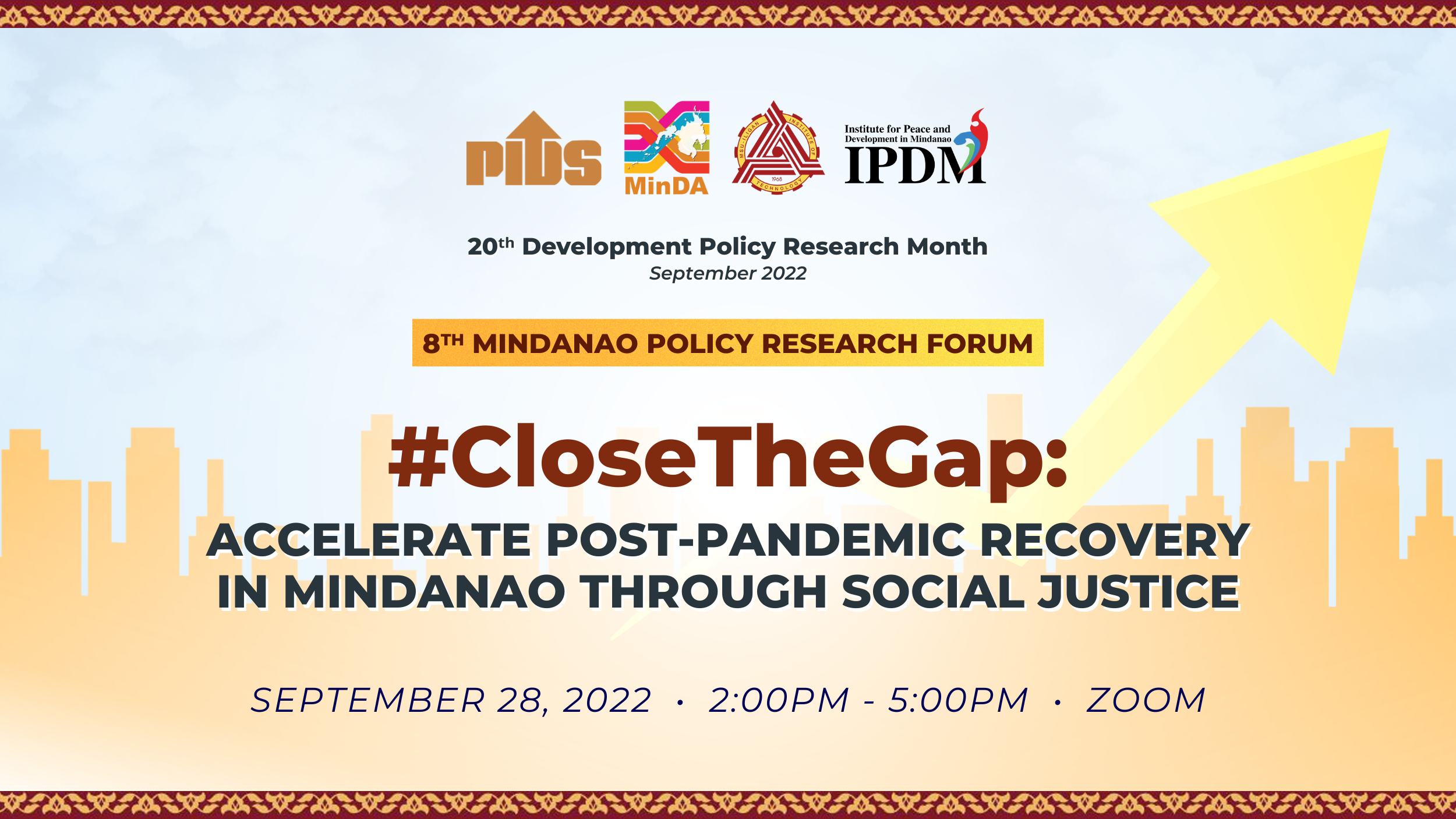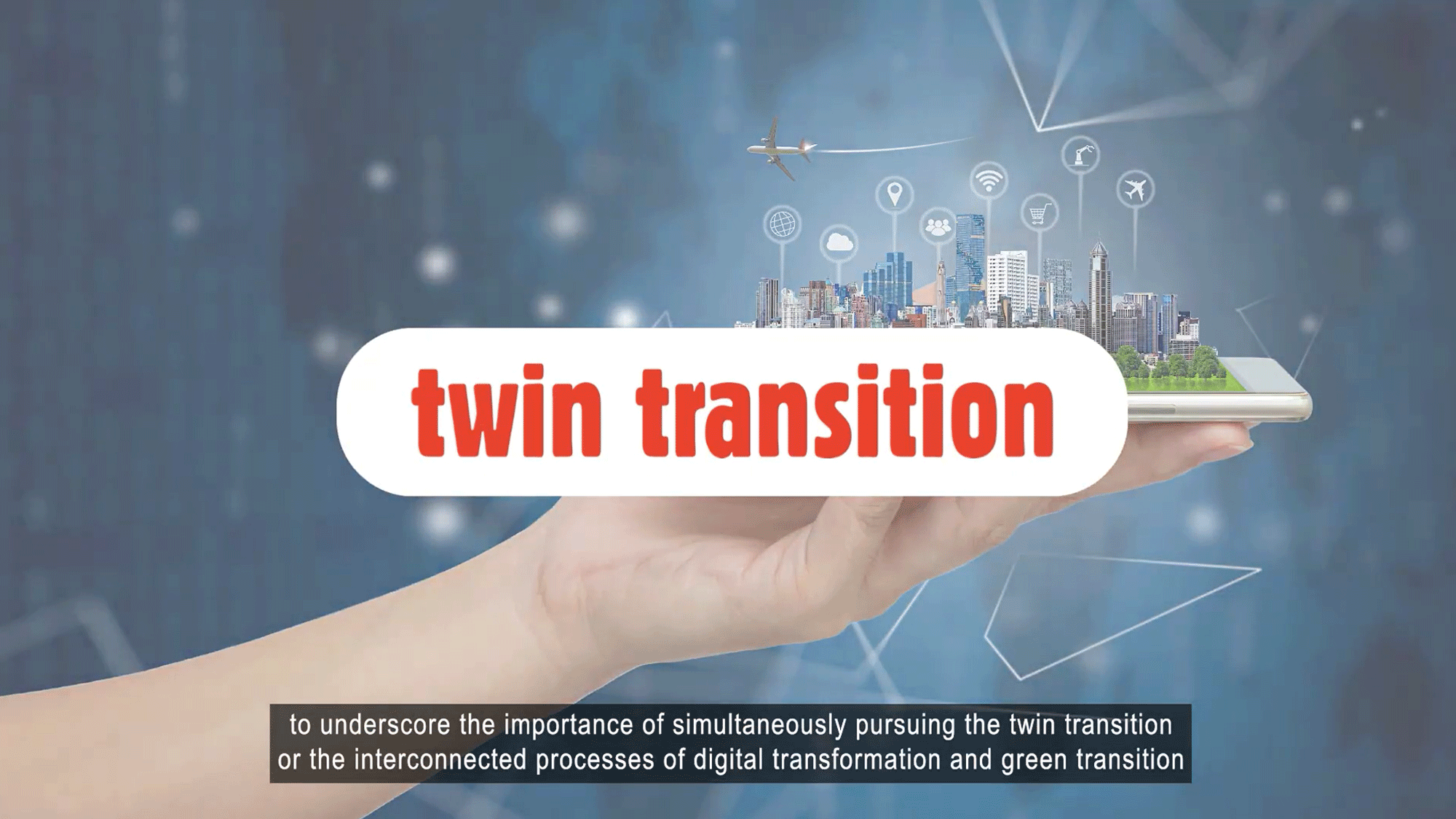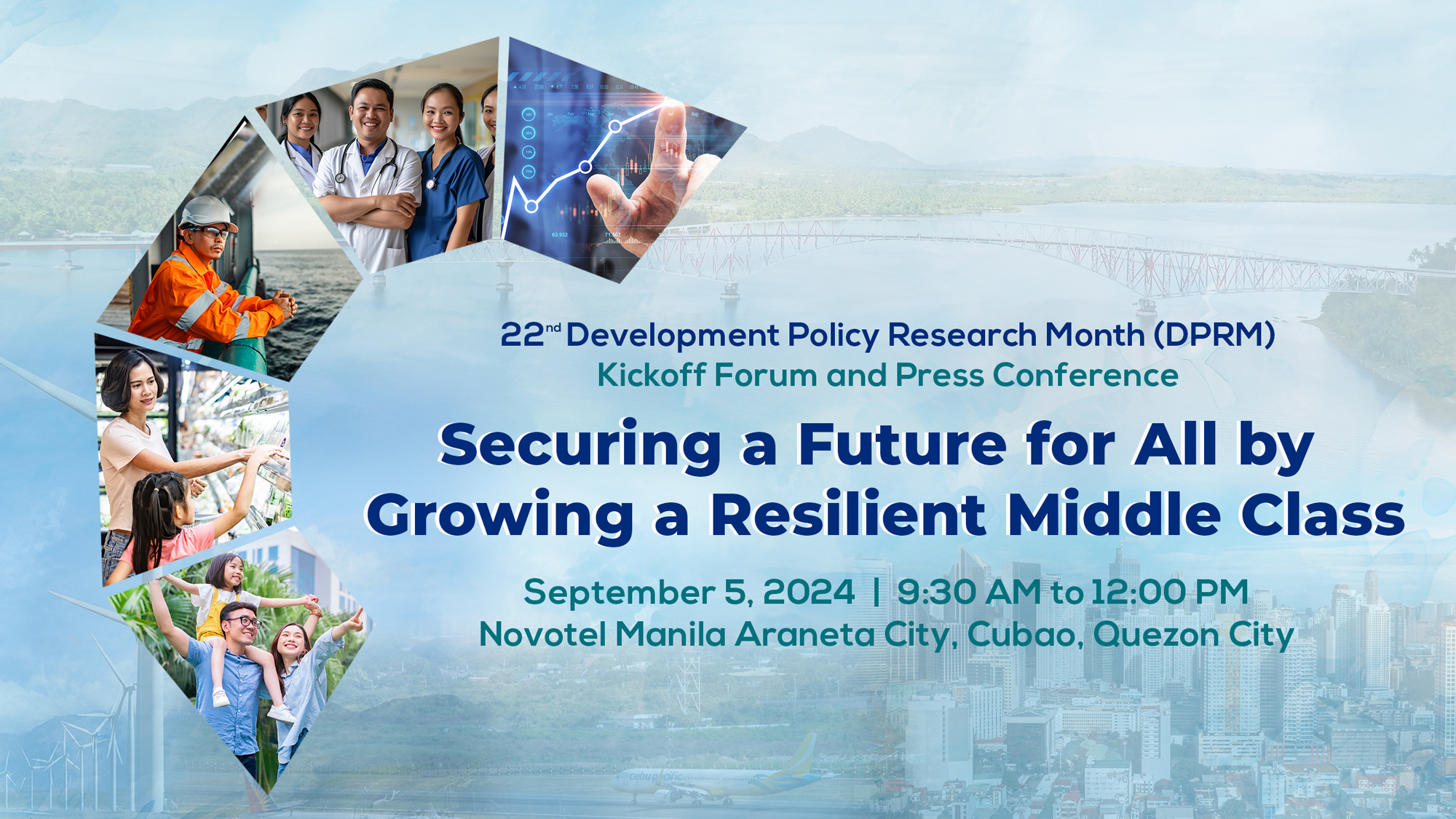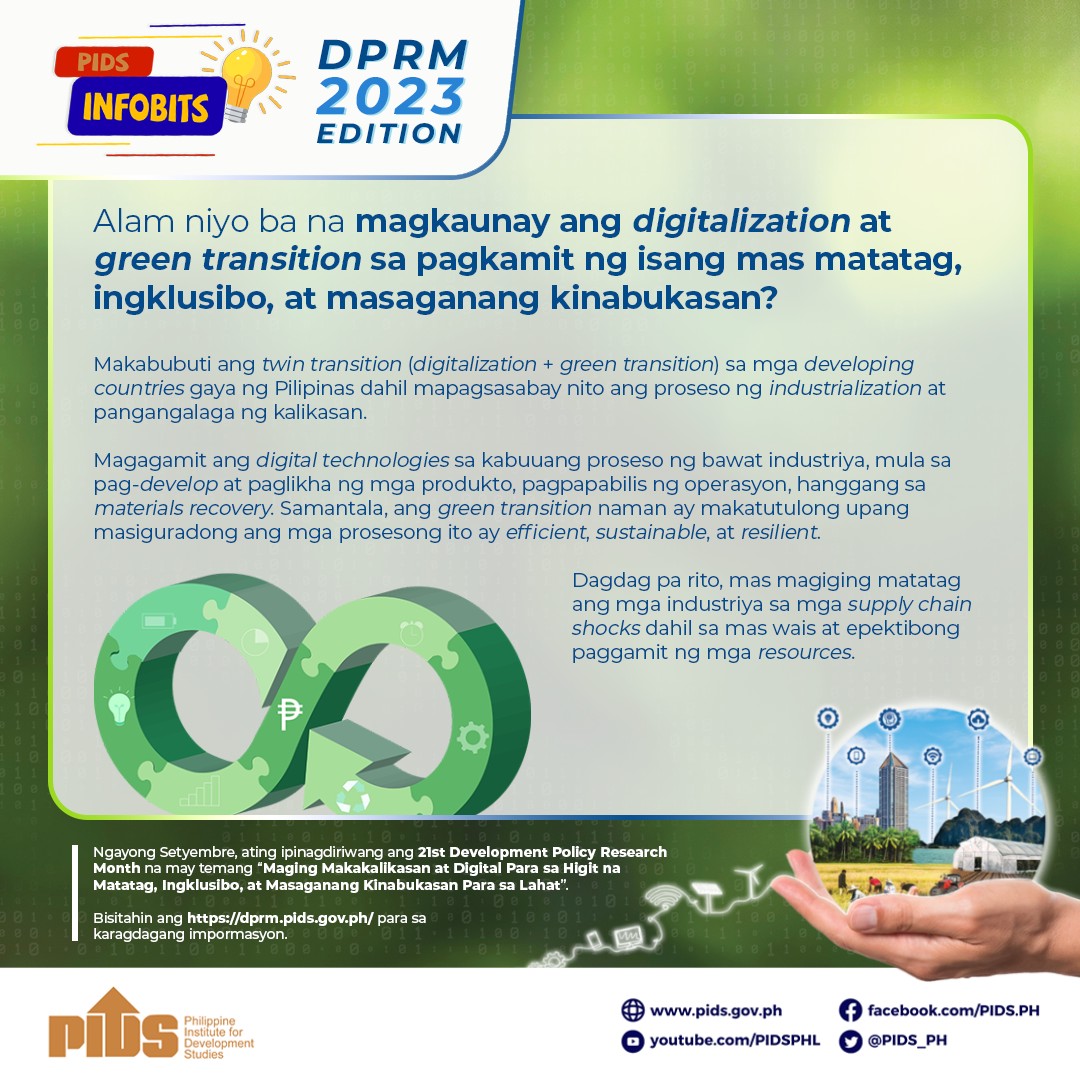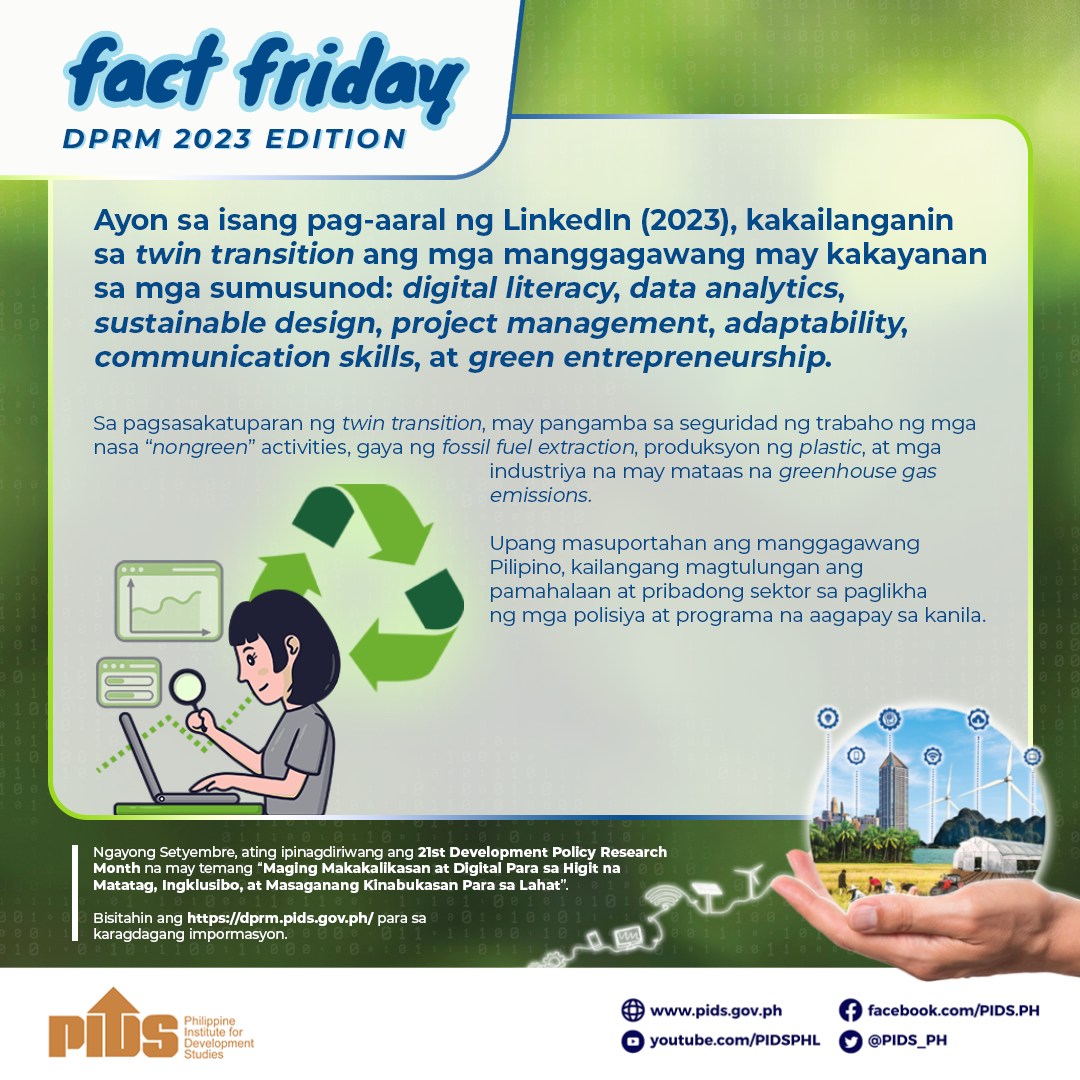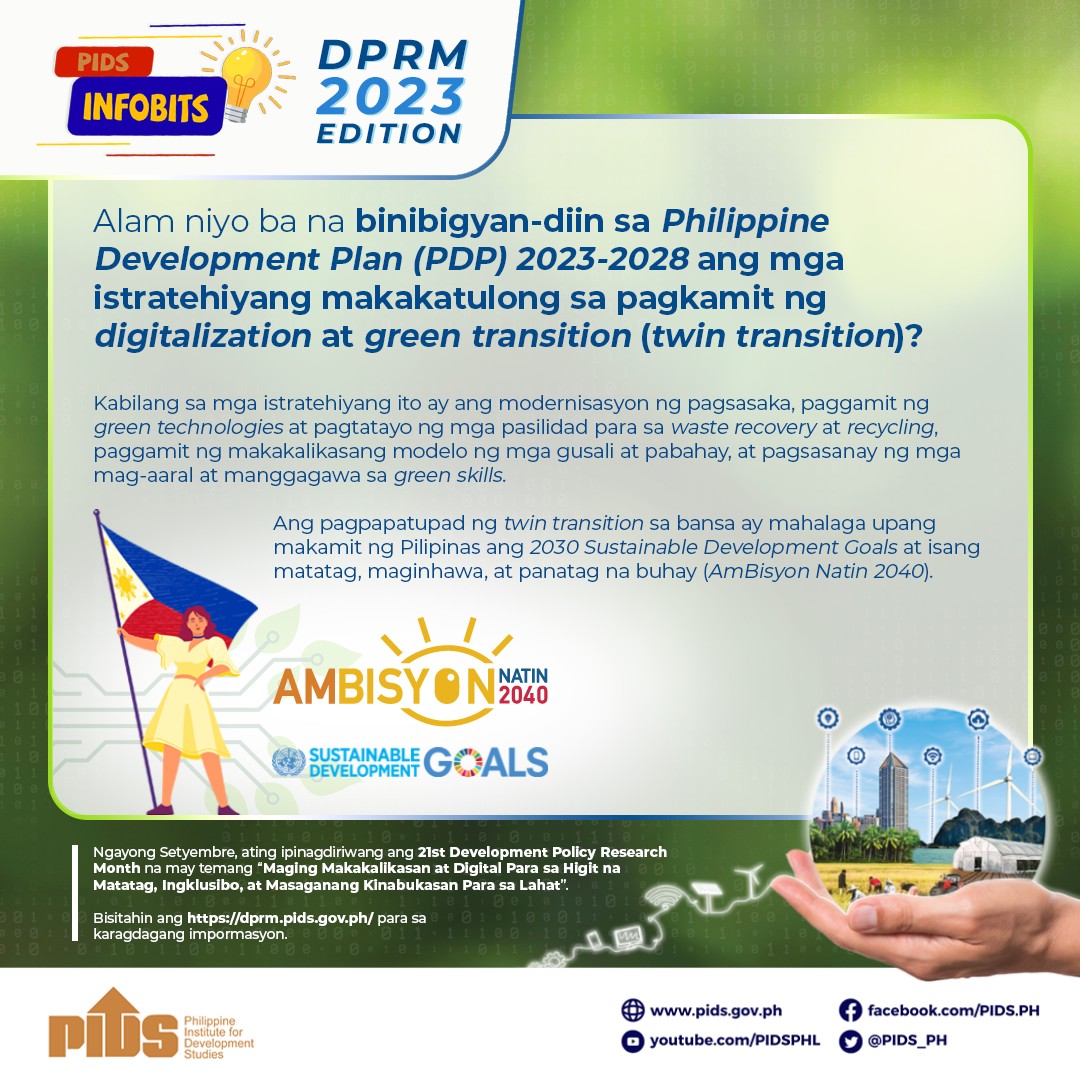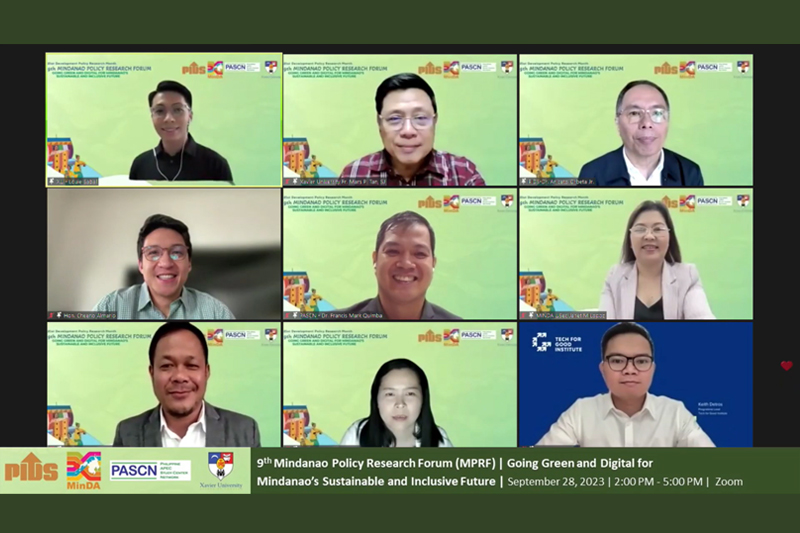
Officials and experts at the 9th Mindanao Policy Research Forum (MPRF) held recently underscored the importance of pursuing green and digital transformation to achieve sustainable and inclusive development for the region.
Centering on the theme "Going Green and Digital for Mindanao's Sustainable and Inclusive Future", the forum was held in celebration of the 21st Development Policy Research Month (DPRM). It was organized by the Philippine Institute for Development Studies (PIDS) and the Mindanao Development Authority (MinDA), in partnership with the Philippine APEC Study Center Network (PASCN) and Xavier University – Ateneo de Cagayan.
In his welcome remarks, Xavier University-Ateneo de Cagayan President Fr. Mars Tan shared the university’s commitment to using green and digital engines to pursue development that protects the planet and dignifies humanity.
"Going green is key to a sustainable and inclusive future, but environmental issues must always be as closely interconnected with social, economic, political, and cultural components of a society. Going green cannot be seen and treated as only a single isolated issue or problem in any context," he emphasized.
PIDS President Aniceto Orbeta Jr., who hails from Surigao del Sur, expressed optimism about the twin transition as a key strategy for Mindanao’s development journey.
"The people of Mindanao have much to gain from adopting environmentally sustainable and digital solutions. The twin strategy will pave the way for an inclusive and prosperous future for its entire population," he said.
The twin transition—the focus of the 21st DPRM—refers to the interconnected processes of green transition and digital transformation. In his presentation, PIDS Senior Research Fellow and PASCN Project Director Francis Mark Quimba explained that "the digital transformation of the economy and society and the shift to a sustainable model of production should be viewed as closely intertwined and simultaneous."
Meanwhile, Keith Detros, program manager of Singapore-based Tech for Good Institute, underscored the role of digital economy companies and micro, small, and medium enterprises (MSMEs) in the twin transition.
He reported the continuing digital transformation of households and businesses in Mindanao. Currently, 7 in 10 households own a mobile phone, 39 percent of households have access to the internet, and 31 percent have access through mobile broadband. He added that while the number of MSMEs boomed, amounting to 99.58 percent of all businesses in the Philippines, they face challenges such as limited information on costs and benefits, limited capacity, and access to finance.
A discussant at the forum, Rep. Cheeno Miguel Almario of the Second District of Davao Oriental, shared that legislation could aid MSMEs by developing regulations that make it simpler to acquire financing, particularly for digital and green initiatives.
"Through legislation, we expand our commitment to science, technology, and innovation, which can complement many facets of social development. We can also invest in research and development. It's not just about using technology and innovating; it's also about improving what we already have," Almario said.
Meanwhile, Dr. Rogelio C. Golez Jr., project leader and professor at Xavier University Mechanical Engineering Department, discussed the Mindanao Clean Energy Living Laboratories (MindaCELLs) project, which seeks to increase people's awareness and knowledge of rural electrification, energy efficiency, and renewable energy.
One of MindaCELLs’ studies is the Biomass Energy Potential of Mindanao, which conducts a biomass resource assessment through a geographic information system and remote sensing in the island region. The study shows that increasing agricultural productivity in Mindanao would increase the residues that could be used as feedstock for biomass power plants.
Davao Oriental State University President Roy G. Ponce underscored that a whole-of-nation approach is needed to achieve the twin transition. He added that academic research can enable the adoption of the twin transition.
For his part, Mr. Joselino P. Galicia, director of the Philippine Cable and Telecommunications Association and general manager of Bongao Cable TV Network, shared Tawi-tawi’s experience in digitalization. He revealed that Tawi-Tawi residents have access to satellite-based internet, which can be “expensive and unreliable”.
"We urge all our members to transform and use fiber optic technologies, especially in underdeveloped places like Tawi-Tawi. We also want to enjoy the same privileges as other places, such as cities, where technologies are already available and are more affordable and sustainable," Galicia stated.
Representing MinDA Chairperson Secretary Maria Belen Acosta, Undersecretary Janet M. Lopoz, MinDA executive director, closed the event by emphasizing the need to pursue human-centered development.
"Economic progress has to be there for sustainability, has to be resilient and inclusive, and should promote total human development," she said.
You may watch the webinar at https://fb.watch/ntZNcfqp48 and https://www.youtube.com/watch?v=eP-_QTV3on0
For more videos of PIDS events, go to https://www.pids.gov.ph/videos.

